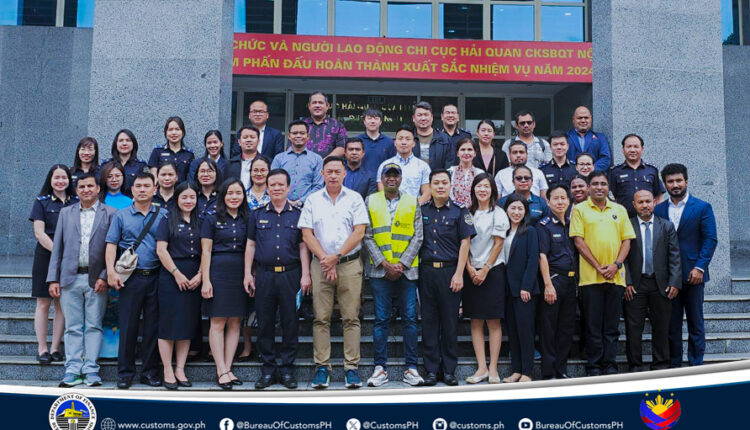BOC strengthens role in cross border digitalization
Affirms commitment in global anti-piracy campaign

THE Bureau of Customs (BOC) continues to make its presence known in relevant regional and lobal fora, this time as a participant in the recently concluded Cross-border Paperless Trade in Asia and the Pacific (CPTA) held in Bangkok, Thailand, under the auspices of the United Nations Economic and Social Commission for Asia and the Pacific (UNESCAP).
In a press statement, the BOC said its participation was headed by the key assessment and operations officers from its two major ports, the Port of Manila (POM) and the Manila International Container Port (MICP).
The CPTA is a UN treaty that aims to expedite the implementation of digital trade facilitation measures for trade and development.
It is designed to support countries in moving to less paper and then to paperless trade by providing a dedicated, inclusive, and capacity-building intergovernmental platform.
The Philippines, through the BOC, is one of the first five countries that have acceded to the Framework Agreement and has actively participated in activities related to its implementation.
The BOC also announced that the country is already set to publish the National Feasibility Study on Cross-border Electronic Exchange of Trade-related Data or Documents with support from the United Nations Economic and Social Commission for Asia and the Pacific (ESCAP) this month.
This study assesses the feasibility of implementing electronic exchange of trade-related data and documents between the Philippines and potential partners in the Asia-Pacific region.
The publication also complies to the directives of both the Standing Committee and the Paperless Trade Council of the Framework Agreement on Facilitation of CPTA.
Commitment versus piracy
In Hanoi, Vietnam, IO3 Paul Oliver Pacunayen, is the key BOC representative to the WCO (World Customs Organization) Regional Workshop on Combating Counterfeiting and Piracy, which was held in collaboration with the Regional Intelligence Liaison Office (RILO) for the Asia/Pacific region.
The workshop focused on sharing best practices for combating counterfeiting and piracy in alignment with the Intellectual Property Rights (IPR) Strategy adopted by the WCO.
Pacunayen is currently the head of the BOC’s Intellectual Property Right Division (IPRD), a unit under the Intelligence Group (IG) headed by Deputy Commissioner for Intelligence (DCI) Juvymax Uy.
The workshop convened representatives from various customs administrations, industry experts, and international organizations from a diverse array of countries, including Bangladesh, Bhutan, Cambodia, Korea, Fiji, Hong Kong (China), Japan, Maldives, Mongolia, Myanmar, Nepal, Pakistan, Papua New Guinea, Samoa, Sri Lanka, Timor-Leste, Tonga, and Vietnam.
Participants actively engaged in active discussions and knowledge-sharing sessions to fortify regional and global strategies against intellectual property violations.
IO3 Pacunayen shared insights from his extensive IPR enforcement experience and highlighted the BOC’s successful initiatives.
“Participating in this workshop provided a valuable platform to exchange knowledge and strategies with our counterparts from across the Asia/Pacific region,” said Pacunayen.
“The insights gained and the partnerships forged here will be instrumental in strengthening our national efforts to combat intellectual property violations and uphold the integrity of our markets,” he added.
The workshop concluded with the participants’ commitment to enhancing enforcement capabilities, improving cross-border cooperation, and continuing the dialogue on innovative solutions to the challenges posed by counterfeiting and piracy.



Comments are closed.